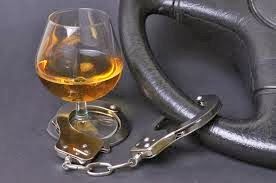In order to motivate first time offenders to change their ways, Utah lawmakers have provided what is called a "Plea in Abeyance" to motivate life change, and help a person keep their record clean. How it works is that a person guilty of a crime admits that they did it by entering a plea of no contest or guilty, but instead of being sentenced within a few weeks, the sentencing is put off for six months, or nine months, or a year, or a year an a half, or longer. During this period of time, the conviction for the crime is incomplete. What's more, if you behave yourself during that period of time and fly beneath the radar, at the end of the agreed upon time, you are allowed to withdraw, or take back your plea, as if you never entered it, and all charges are dismissed!
The Utah Code of Judicial Administration, section 4-704, makes it so. In that rule, court clerks are given authority to accept a plea in abeyance for traffic offenses, and prosecutors are given the ability to negotiate pleas in abeyance for other offenses. Those charged with offenses, including felonies, can take advantage of this law, and keep their record clean.
Although some plea in abeyances only require that you don't commit new offenses, most require more effort on the part of the person making the deal. For example, in a traffic offense related plea in abeyance, the person who entered a plea needs to take and complete traffic school to earn the dismissal at the end of the abeyance period. Those charged with drug offenses may have to attend a year and a half or more of a drug court, or participate in other counseling. If it is a domestic violence charge, anger management classes may be required. There may even be a community service component to the agreement. The State is not collecting a fine, but you can be sure they will collect a "plea in abeyance fee" for the administrative costs of the plea in abeyance, that just happens to be exactly what the fine would have been had it been a complete conviction. As you can see, there are strings attached, and all kinds of conditions can be negotiated that need to be completed in order to get that much desired dismissal.
If a person does not fully comply with the terms of the plea in abeyance agreement, then sentencing occurs, the conviction is final, and there is no right to a trial. Prosecutors like this part because it makes for an easy conviction. If a person absconds or flees the State, no problem, the conviction and sentencing can occur in their absence. Jail time can be ordered, and the judge has all the options he or she would have had without the plea in abeyance agreement.
Unfortunately not all crimes are eligible for a plea in abeyance. For example, you cannot get a plea in abeyance for a DUI. It has been legislatively excluded. Senate Bill 20 (SB20) passed in 2004, used to allow plea in abeyances for Class B misdemeanors, but not for Class A or Felony DUI's. That law was later change, and now the State of Utah has a total ban on DUI plea in abeyances. Therefore, if you get a DUI conviction, it will be on your record for ten years minimum.
Even if you get your charge reduced to a reckless driving, or some other driving offense that is plea in abeyance eligible, you may not be out of the woods. Utah Drivers License Division takes actions against commercial drivers licenses in some driving offense plea in abeyance situations, and will suspend the commercial drivers license, even if the charges are later dismissed. As such, if you are a commercial driver, make sure you know what you are doing before entering a plea in abeyance.
Because of the various risks and benefits to a plea in abeyance, it is a good idea to consult with a lawyer before jumping into such an arrangement. In fact, it is always a good idea to have a lawyer on board when facing criminal charges. First, a lawyer can help negotiate a plea in abeyance when it otherwise may not have been offered. Second, a lawyer can help negotiate the terms so that a person isn't set up for failure. Third, a lawyer can steer a client away from a deal that may be too good to be true if the consequences trying to be avoided, like license suspension, will happen with a plea in abeyance, and can help negotiate a better deal to obtain the desired outcome. Finally, a lawyer can follow up with the court to make sure charges get dismissed.
I have assisted many clients in obtaining plea in abeyance resolutions. I have also helped clients get the promised dismissals when the court and prosecution haven't followed up on the deal. I have also helped clients charged with DUI to avoid a DUI conviction by other creative means because of the prohibition on DUI plea in abeyances. If you are faced with a DUI or other driving related charge, and want to know if a plea in abeyance is possible, or if it will be good for you, give me a call (435) 654-9527.
www.edjoneslaw.com









